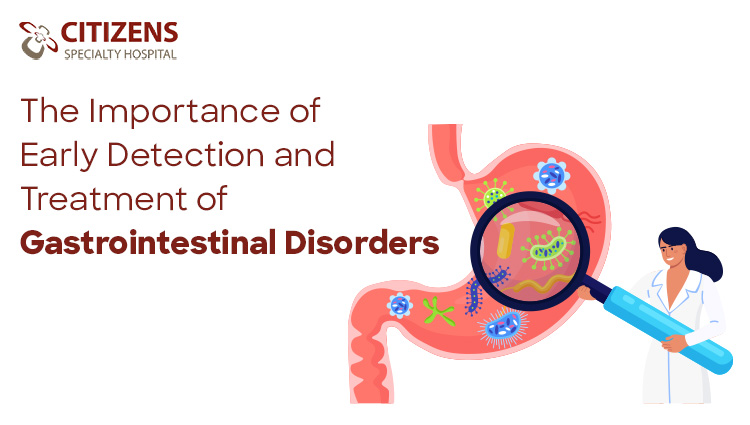
Gastrointestinal disorders are a common problem faced by people of all ages, and early detection and treatment are of utmost importance to avoid complications and improve quality of life. The digestive system is a complex network of organs that work together to convert food into energy and eliminate waste products. Any disturbance in this delicate balance can result in a range of symptoms, including abdominal pain, bloating, constipation, diarrhea, and more. You can visit a gastroenterologist in Hyderabad or anywhere in the world to learn more about how to treat gastrointestinal disorders.
Types of Gastrointestinal Disorders
Benefits of early detection and treatment:
How does a gastroenterologist help?
The best gastroenterologist in Hyderabad will typically perform a physical examination and ask about a patient's medical history and symptoms. Further testing, such as blood tests, stool tests, and imaging studies, may also be necessary to diagnose the condition.
Once a diagnosis has been made, treatment options will vary depending on the type and severity of the condition. Medications, dietary changes, and lifestyle modifications are some of the common treatments for gastrointestinal disorders. In severe cases, surgery may be necessary.
It is important to note that early detection and treatment are not just the responsibility of the patient but also of the healthcare provider. Providers should be vigilant in identifying symptoms and refer patients for further testing when necessary. They should also educate patients on the importance of early detection and treatment and provide them with full knowledge about the treatment details, procedures and precautions.
Conclusion
Early detection and treatment of gastrointestinal disorders are critical to avoid complications, improve quality of life, and better manage chronic conditions. Patients should be aware of the symptoms and seek help from the best gastroenterologist in Hyderabad promptly. Healthcare providers should be proactive in identifying and managing these conditions. By working together, we can help ensure that people with gastrointestinal disorders receive the care they need to live healthy and fulfilling lives.